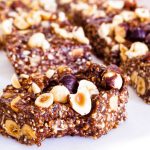
Nutrition & Health
Stomach Acid: A Common Factor in Gut Troubles
So many of us these days experience some kind of gut trouble. Whether it be bloating, burping, gut pain, low appetite, indigestion, impaired immunity, irregular bowel movements or food sensitivities. These conditions often come with associated symptoms of tiredness, mood disorders and skin conditions such as acne. The treatment of these conditions may be something as simple as having adequate stomach acid. This simple solution in our stomach is crucial to the uptake of many of our minerals including iron, magnesium, selenium, manganese, molybdenum, chromium and zinc and is needed to digest our proteins. It also limits the number of pathogenic bacteria from passing into your digestive tract.
There are many factors that contribute to low stomach acid and these include many medications, inadequate exercise, dehydration, zinc deficiency, poor sleep, worry, stress, poor eating habits and older age. An infection in the stomach of Helicobacter pylori will greatly reduce stomach acid. Having low stomach acid can cause weak nails, thinning hair, iron deficiency, fatigue, food allergies, heartburn, bloating, burping, candida overgrowth, diarrhoea or constipation or both. Low stomach acid leads to multiple nutrient deficiencies and causes an imbalance of your beneficial gut flora.
The first way we can help to manage our stomach acid levels begins with our teeth. We need to chew our food until it would be the same as if put through the blender. This places much less strain on our stomach to churn and break the food down. It also makes the nutrients in our food more available to be absorbed and reduces the risk of particles of food entering our small intestine, where it can cause further trouble.
Perhaps the most important factor in looking after our stomach acid is by nurturing and supporting our nervous system. This means taking time out daily to rest, relax and breath, especially when eating our food. The more our body is relaxed, the better it can release stomach acid and the many digestive enzymes in order to digest our food efficiently and easily.
Some simple ways to increase our stomach acid is to:
- Drink the juice of half a lemon or 1 tbsp of apple cider vinegar in 200mls of fresh, clean water 1/2 hr before each meal.
- Always sit down when eating any food to allow your digestive tract to relax.
- Take some slow, deep breaths for a few minutes before eating your meal.
- Avoid drinking more than 1/2 cup of fluids within 1/2 hr of eating.
- Avoid drinking caffeine within an hour of eating.
- Chew your foods until they are completely mush before swallowing.
- Include fennel seeds with your meal or simply chew on some afterwards to improve digestion.
- Add ginger to your meal or drink ginger tea between meals.
- Make sure you getting enough zinc in your diet from eating foods such as pepita’s and brazil nuts.
Of course, eating a diet that is rich in whole foods that are natural and unprocessed will greatly improve your digestion and therefore your overall wellbeing. Happy eating!
Jesabe Warner
Naturopath, Affordable Wholefoods.

















Leave a reply